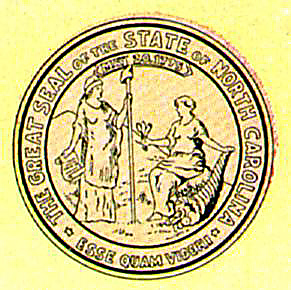The Making of the 50 States: North Carolina
Part 2: The Rest of the Story The Church was never far away from the English settlers' lives, as evidenced by the Vestry Act of 1703, which required members of the General Assembly to be members of the Church of England and to swear an oath of allegiance to the monarch. This act was enforced to a greater or lesser extent for many years afterward, especially among the non-Anglican Quakers, Catholics, and Presbyterians who lived in the new colony. Slavery was never far away from the lives of the English settlers, either. The colony's first slave code was set up in 1715. It wasn't just the English who settled in North Carolina, either. People from other European countries, including France, Germany, Spain, and Switzerland, moved to North Carolina in the 17th and 18th Centuries. One German-Swiss town, New Bern, became the colonial capital in 1745. The colony's first newspaper, the North Carolina Gazette, began six years later. In the mid-1750s, the French and Indian War flared up in North Carolina, with Cherokee fighting alongside the French and the British militia fighting alongside their home countrymen.
A stronger show of independence came in 1776, with the passing of the Halifax Resolves, a blueprint for the Declaration of Independence. War came to North Carolina in 1775, with the Mecklenburg Declaration stating the colony's case against Britain and British soldiers stating Britain's case with their weapons. Militiamen and American soldiers from North Carolina fought in the battles of Monmouth, Charleston, Camden, Guilford Courthouse, and Kings Mountain. North Carolina troops were with the victorious American Army at Yorktown, in 1781.
First page > In the Beginning > Page 1, 2
|
|
Social Studies for Kids
copyright 2002–2026
David White



 As in other colonies, the civil unrest that resulted from the
As in other colonies, the civil unrest that resulted from the  In that same year, North Carolina had ratified the
In that same year, North Carolina had ratified the 
